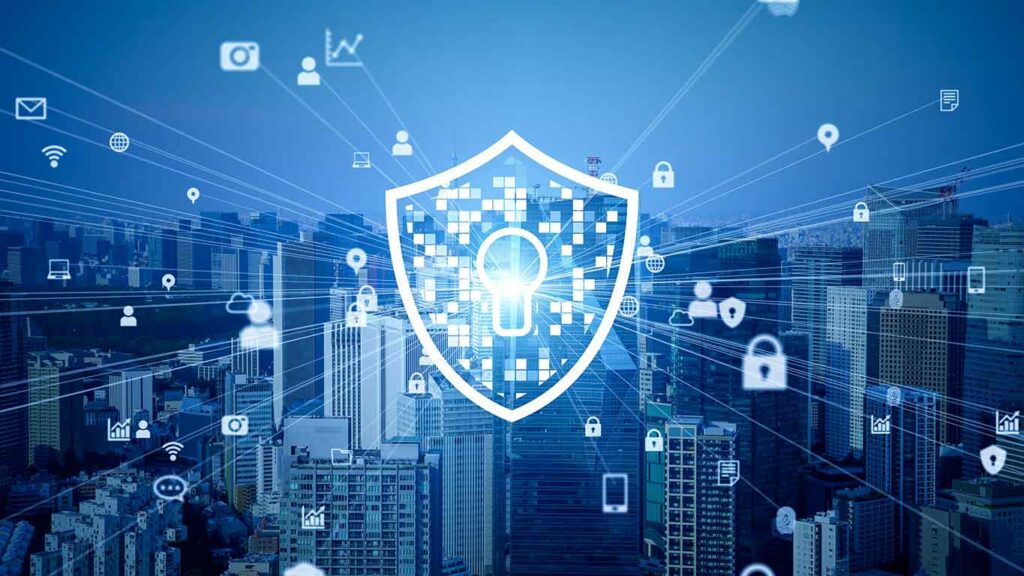
If you want to ensure your data is safe from hackers, then encryption is the way to go. This process keeps your data private and makes it impossible for ISPs, government agencies, WiFi administrators, and other snooping third parties to read your online activity.
A good VPN service will use a secure encryption protocol with perfect forward secrecy. This process prevents a hack from exposing your secure sessions with a single key.
Encryption
Your data is altered while transmitted through a VPN, so only the intended receiver can decode it. Therefore, neither your internet service provider nor any other parties that might eavesdrop on your data will know what you are doing online. Anyone who values privacy and wants to know how safe are VPNs should use one.
Your VPN will use an encryption protocol built into its software to encrypt your data. Some of these protocols use a combination of different types of encryption algorithms and ciphers to secure your connection. For instance, Layer 2 Tunneling Protocol (L2TP) pairs with Internet Protocol Security (IPSec) to create a secure tunnel between your device and your VPN’s servers. The data transmitted over your connection is encrypted using a pre-shared key combination and a combination of symmetric and asymmetric encryption.
Symmetric encryption, based on an algorithm that’s the same for the sender and receiver, is one of the most common methods VPNs use. Since both parties require the same key to encrypt and decrypt communications, it is also the fastest sort of encryption. However, this method can be compromised if the key is discovered, so many VPNs opt for more advanced methods like public-key encryption. This system combines a symmetric and asymmetric approach with RSA to ensure no hacker can intercept your information.
Routing
Encryption converts online data into a form that can only be deciphered using a secret key. It prevents ISPs, WiFi administrators, the police or government, and cyber criminals from spying on your internet connection. Even on a public network, it prevents hackers and other unscrupulous individuals from stealing passwords, personal information, credit card details, or confidential company data.
This process is called symmetric key encryption and is the method most VPNs use to encrypt data. It has a long history dates back to the ancient Romans and Greeks, with people sending messages in secret code only decipherable by those who held the keys. One significant disadvantage to this system is that if someone intercepts the key, they can decrypt your encrypted data.
AES, or Advanced Encryption Standard, is the cipher most used by VPNs. Its security is so strong that it’s also the US Government’s algorithm. Most VPNs now offer AES, and we recommend only considering services that offer this. Some VPNs still use the older RSA-1204, which the NSA has cracked, so check to see what key length they have before you sign up.
Another way to boost your security is to use a VPN that offers perfect forward secrecy. This feature ensures that the encryption key is never sent across a connection. Instead, the VPN server and client independently generate a key through the Diffie-Hellman or Elliptic Curve Diffie-Hellman (ECDH) key exchange algorithm. It means that if the DH or ECDH key ever gets compromised, it will only expose a single secure session and nothing else.
Authentication
When data travels over an open channel – like unencrypted public WiFi, for instance – it is vulnerable to cybercriminals who may intercept it to steal sensitive information. To prevent this, VPN providers incorporate authentication protocols and cryptographic ciphers that ensure your data is encrypted at every point in its journey.
Authentication begins with a secure protocol handshake that connects your device and the VPN server. Once this is complete, the asymmetric encryption key gets exchanged, and the symmetric encryption algorithm begins to work. The data is split at this stage into packets or sections, each getting its unique encryption key. It is designed to prevent hacker attacks such as man-in-the-middle (MITM).
In addition to asymmetric and symmetric encryption, VPNs utilize many verification and authentication methods that ensure the integrity of your data as it travels through the tunnel. For example, blowfish encryption and AES 256-bit military-grade encryption are the two most commonly used security measures.
Another way that a VPN protects your data is by editing the source using a hash function to create a fixed-length string that looks nothing like the original. The result is a hash value that you can use to verify the authenticity of the data received.
Transparency
When you connect to a VPN, the data transmitted over the Internet is translated into a coded format that is not readable by anyone outside the connection, such as your ISP or attackers operating rogue WiFi hotspots. It is known as tunneling, a significant security component of any VPN service.
VPNs use a variety of encryption algorithms, also called ciphers, to encode your data. The most common types are symmetric and asymmetric key encryption. Symmetric key encryption uses the same key for encrypting and decrypting, ensuring that only the intended parties can read your communications.
But this system has a weakness: if an interceptor obtains the encryption key, it can easily decrypt all messages sent over the network. It is why most VPN services utilize asymmetric encryption, which uses different keys for encrypting and decrypting.
AES (Advanced Encryption Standard) and Blowfish are the most popular asymmetric encryption ciphers. AES has been standardized by The National Institute of Standards and Technology as a secure algorithm, while Blowfish is an open-source cryptographic method.
The length of its key determines the strength of an encryption cipher. The longer the key, the more combinations it has; thus, a brute force attack is harder to crack. Currently, 128- and 256-bit keys are considered secure.












